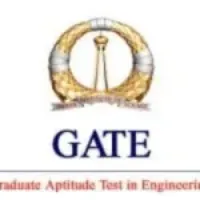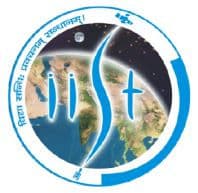Latest Applications Open 2024:
The GATE 2025 syllabus for Botany has been officially released by IIT Roorkee. As a key national-level examination, GATE 2025 is organized for admission into postgraduate programs in engineering and technology, particularly ME/M.Tech. This newly released syllabus provides a detailed framework of the topics that will be covered in the exam.
The GATE 2025 exam is scheduled for the 1st, 2nd, 15th, and 16th of February 2025. The Botany syllabus includes essential areas such as plant physiology, plant ecology, plant taxonomy, and genetics. This comprehensive syllabus is designed to ensure that candidates are well-prepared for both theoretical and practical aspects of Botany.
GATE exams are conducted annually on a rotational basis by various IITs and IISc across different zones. For complete and updated information about the GATE 2025 syllabus, including specific topics and guidelines, candidates should refer to the official resources provided by IIT Roorkee. Proper preparation based on this syllabus is crucial for excelling in the exam and advancing in the field of Botany.
GATE 2025 Botany Syllabus – PDF Released
GATE 2025 Botany Syllabus has been Released. Click to Download Botany Syllabus Pdf.
Section 1: Plant Systematics
Major classification systems, plant groups, phylogenetic relationships, and molecular systematics.
Section 2: Plant Anatomy:
Plant cell structure and its components; cell wall and membranes; organization, organelles, cytoskeleton, the anatomy of root, stem and leaves, floral parts, embryo, and young seedlings; meristems, vascular system, their ontogeny, structure and functions, secondary growth in plants and stellar organization.
Section 3: Morphogenesis & Development
Cell cycle, cell division, the life cycle of an angiosperm, pollination, fertilization, embryogenesis, seed formation, seed storage proteins, seed dormancy, and germination.
The concept of cellular totipotency, clonal propagation, organogenesis and somatic embryogenesis, artificial seed, somaclonal variation, secondary metabolism in plant cell culture, embryo culture, in vitro fertilization.
Section 4: Physiology and Biochemistry
Plant water relations, transport of minerals and solutes, stress physiology, stomatal physiology, signal transduction, N2 metabolism, photosynthesis, photorespiration; respiration, Flowering: photoperiodism and vernalization, biochemical mechanisms involved in flowering; molecular mechanism of senescence and ageing, biosynthesis, mechanism of action and physiological effects of plant growth regulators, structure and function of biomolecules, (proteins, carbohydrates, lipids, nucleic acid), enzyme kinetics.
Section 5: Genetics
Principles of Mendelian inheritance, linkage, recombination, genetic mapping; extrachromosomal inheritance; prokaryotic and eukaryotic genome organization, regulation of gene expression, gene mutation and repair, chromosomal aberrations (numerical and structural), transposons.
Section 6: Plant Breeding and Genetic Modification
Principles, methods – selection, hybridization, heterosis; male sterility, genetic maps and molecular markers, sporophytic and gametophytic self-incompatibility, haploidy, triploidy, somatic cell hybridization, marker-assisted selection, gene transfer methods viz. direct and vector-mediated, plastid transformation, transgenic plants and their application in agriculture, molecular pharming, plantibodies.
Section 7: Economic Botany
A general account of economically and medicinally important plants- cereals, pulses, plants yielding fibres, timber, sugar, beverages, oils, rubber, pigments, dyes, gums, drugs and narcotics. The economic importance of algae, fungi, lichen, and bacteria.
Section 8: Plant Pathology
Nature and classification of plant diseases, diseases of important crops caused by fungi, bacteria, nematodes and viruses, their control measures, the mechanism(s) of pathogenesis and resistance, molecular detection of pathogens, and plant-microbe beneficial interactions.
Section 9: Ecology and Environment
Ecosystems – types, dynamics, degradation, ecological succession; food chains and energy flow; vegetation types of the world, pollution and global warming, speciation, and extinction, conservation strategies, cryopreservation, and phytoremediation.
Other GATE-Related Syllabus Links
| Food Technology | (XL-U) | Biochemistry | (XL-Q) |
| Chemistry | (XL-P) | Microbiology | (XL-S) |
| Zoology | (XL-T) | – | – |
If you have any queries regarding the GATE 2025 Botany Syllabus, you can ask your query and leave comments below.

As a dedicated Biology Science graduate, I’m passionate about sharing the latest updates in national and state entrance exams through my blog. I aim to keep aspiring students informed about exam trends, important dates, and changes in syllabi. With a keen interest in education, I strive to offer valuable insights for students navigating the competitive landscape of entrance examinations and admission tests. Stay updated with me.


